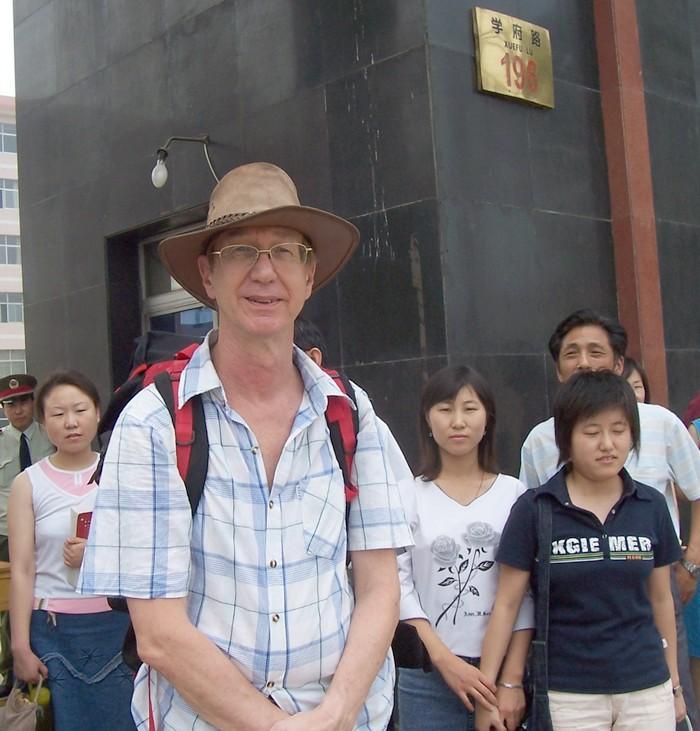| Manipulating exchange rates | |
|---|---|
| Sep 21, 2006 17:21 | |
 | I did not think traveling in China was cheap, nor was it expensive to me. But this line in a news article caught my eye. It makes me think some body wants to have a single currency. "Member nations of the International Monetary Fund are also nudging China and the U.S. to do more to address imbalances in the world economy. To many, that means exchange-rate shifts in the dollar and yuan. It also means more saving (and less borrowing) in the U.S., and more consumption within China." Would you agree that 8:1 is a fine Chinese:US ratio for the time being? I cannot imagine the impact on the rural Chinese if the exchange rate ratio were significantly altered. ...although a change in the ratio might benefit people in Beijing, Shanghai, and other thriving megapolises (Is that a word...or just an expression from a Superman comic book? ;) ) ...and I know that a dramatic change in the exchange ratio would make traveling in China much more expensive for me. |
| Sep 21, 2006 20:53 | |
 | I think all these are beyond our control. It will be decided by the smarter people up there with every information, foresight & selfish objectives available. We can't do anything about it at all. So let's not worry about things that we cannot do anything about. Let's worry about learning Chinese to enjoy China better. |
| Sep 22, 2006 10:42 | |
 | You are correct, Pinetree...nothing we can do about it. ...but I know those high ups are not as smart as you or me... ...that's why I worry. |
| Sep 24, 2006 11:33 | |
 | Hey Griz, I don't worry about exchange rates but I have a differnt view to Pinetree (sorry mate), for if we only discussed things over which we had some control, we wouldnt have much to talk about. China is deliberately keeping the rate low so as to maximise exports and discourage imports. Quite a good policy to keep the economy booming. Sure if cheap goods are being exported they are not available for home consumption, so yes the local population is losing out perhaps - in the short term. Yes, the city people are the buyers of the imported goods and would benefit from a change in the rate BUT there is such a growing divide between rich and poor, the government is unlikely to be too concerned. Hand in hand with this, the massive trade surplus means that China has massive currency reserves. Instead of just using it now for even more development it is holding back. It invests large amounts oeverseas so spreading its risks, and it has reserves for when the inevitable slowdown begins. Sure the US is complaining and technically has a good point, but with its giant agriculture subsidies, refusal to allow some foreign companies to buy US assets, and general manipulation of markets whenever it has the chance, why should anyone take any notice of them? Go for it China, develop! |
| Sep 26, 2006 04:09 | |
 | I add my few bits to Apault’s comments: Yes, no country should be ‘told’ what to do for the benefit of another country! Meanwhile it is in each country’s interest to maintain stable, mutually beneficial international trade relationships! We live in a ‘world economy’: what happens to the economies of, say, Western European countries, USA, Australia or Japan, which all are ‘consumer driven economies’, will affect to a certain degree China’s. Countries with large trade deficits with China would like to the RMB ‘appreciate’, to slow down their own imports. Presently, the RMB is primarily pegged to the US$. Since July 2005 it appreciated at about 3%/year; this rate has increased lately. PRC’s economy grew from the 8th to the 4th largest in the world in only a few years, something not seen in modern history! China’s exports represent a large fraction of it's economy and make the country somewhat dependent on the buying power and needs of it’s trading partners. If the economies of Western Europe, USA, Australia, Japan, were to ‘tank’, China may find itself with a lot of unsold goods. On the other hand, if the RMB becomes too ‘expensive, people will buy lass Chinese goods. In both cases one will have to cut production and many people will become unemployed. As the percentage of Chinese goods (and services) purchased internally grows, the country will become more immune to such ‘external’ influences. Hence the conundrum: appreciate the RMB, export less and curtail growth, or keep it ‘low-priced’ and risk to have to cut production more or less unexpectedly. So far China did a very good job of managing the RMB's appreciation. I see no reason to believe that this will change. Meanwhile the ‘consumer’ part of the economy is growing fast: for instance one only has to take a clue from the annual growth in the number of automobiles sold in China. In general, economists agree on the following ‘pros and cons’ for RMB’s appreciation: Pro: increase imports (cheaper), more investments and Government spending, slows inflation, forces the economy to become more productive Con: May trigger a ‘hard landing for the economy and it’s growth, some companies will fail (close), may negatively affect some banks. |
| Sep 26, 2006 22:58 | |
 | Hey, u guys sound sensible and fair in your comments. Am sure the various govts have thought about all these and a natural balance will be struck - as long as there is no unfair intervention via force/ violence. Thank you. |
Post a Reply to: Manipulating exchange rates








 Copyright © 1998-2026 All rights reserved.
Copyright © 1998-2026 All rights reserved.